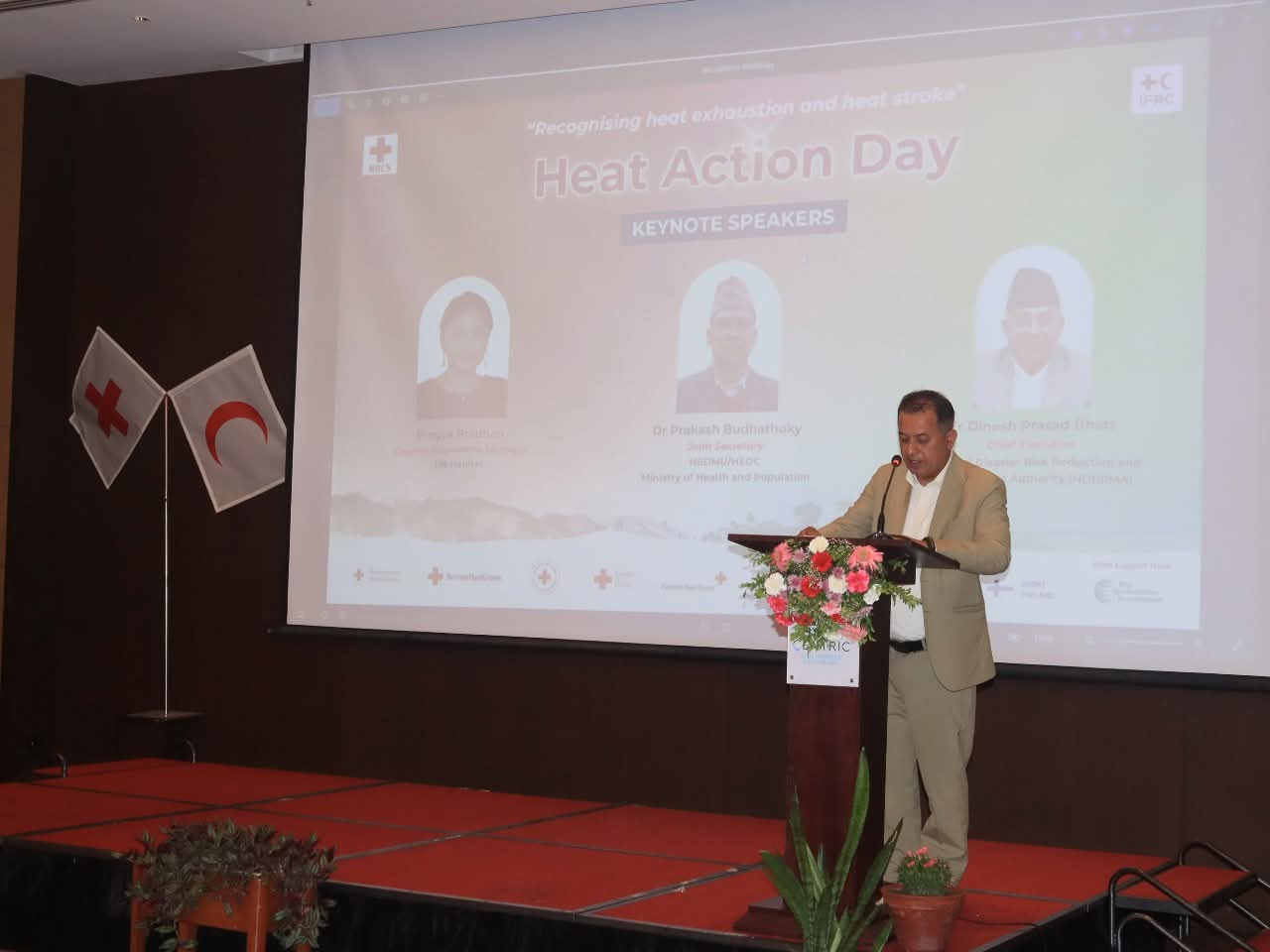Kathmandu, June 12, 2025 – Marking the observance of Heat Action Day, stakeholders from various sectors gathered in the capital today to discuss the escalating challenges posed by heatwaves and extreme temperatures in Nepal. The event highlighted collaborative efforts and strategies aimed at mitigating the impacts of rising temperatures, driven by climate change.
Proactive Measures by NDRRMA
Engineer Dinesh Bhatta, Chief of the National Disaster Risk Reduction and Management Authority (NDRRMA), underscored the Authority's commitment to addressing heatwaves through structured action plans. Speaking at the event, he stated, "In previous years, NDRRMA has implemented targeted strategies to combat heatwaves and extreme heat. This year, we have formed a dedicated task team actively working on the issue."
He further shared that awareness campaigns have been expanded to include materials in seven local languages, which are being disseminated across various media platforms. These campaigns aim to educate the public on necessary precautions to safeguard against heatwave-related health risks.
Health Impacts Require Unified Action
Dr. Prakash Budhathoki, Joint Secretary of the Ministry of Health and Population, highlighted the severe health consequences of heatwaves, urging stakeholders to develop a shared vision for tackling the issue. "Heatwaves are increasingly endangering human health," he remarked. "A unified approach is essential to protect communities from these risks."
Climate Change and Broader Impacts
David Fischer, Head of Delegation for the International Federation of Red Cross and Red Crescent Societies (IFRC), called for a comprehensive perspective on the implications of rising temperatures. "The effects of heatwaves are not limited to human health. They extend to forests, wildlife, and the environment. These interconnected impacts must be addressed collectively," he said.
Community-Centric Responses
Pragya Pradhan, Country Programme Manager for UN-Habitat, emphasized the importance of placing communities at the center of heatwave mitigation efforts. "Our interventions must prioritize community needs and empower them with the tools and knowledge to adapt to extreme heat conditions," she stressed.
Panel Discussion and Knowledge Sharing
The event also featured a panel discussion where experts shared insights on effective strategies to mitigate the impacts of heatwaves. Stakeholders from health, disaster management, and environmental sectors exchanged ideas on fostering resilience against the growing threat of extreme heat in Nepal.
As Nepal continues to grapple with the realities of climate change, initiatives like Heat Action Day underscore the importance of collaboration, awareness, and proactive measures to safeguard communities and ecosystems from the adverse impacts of rising temperatures.